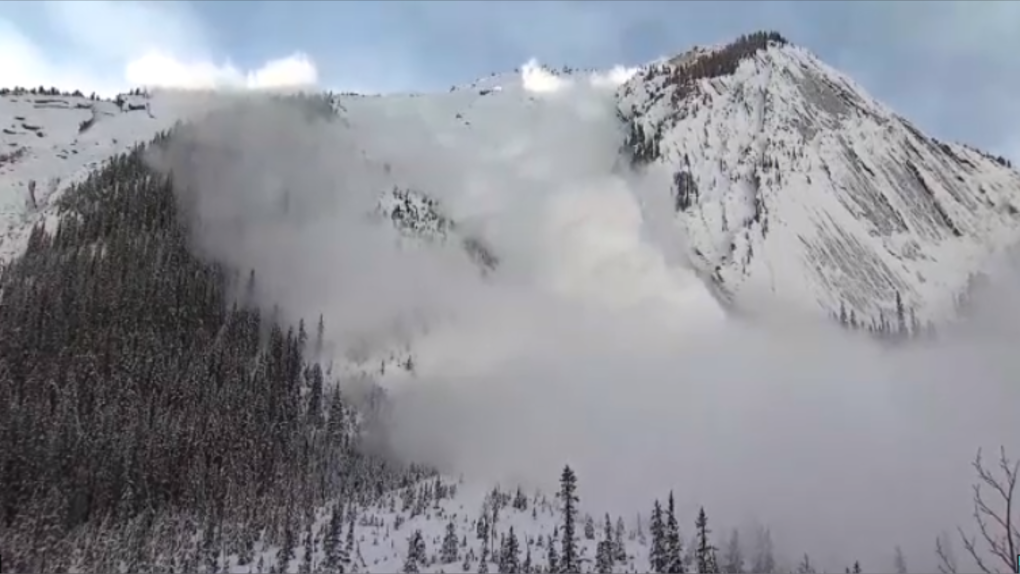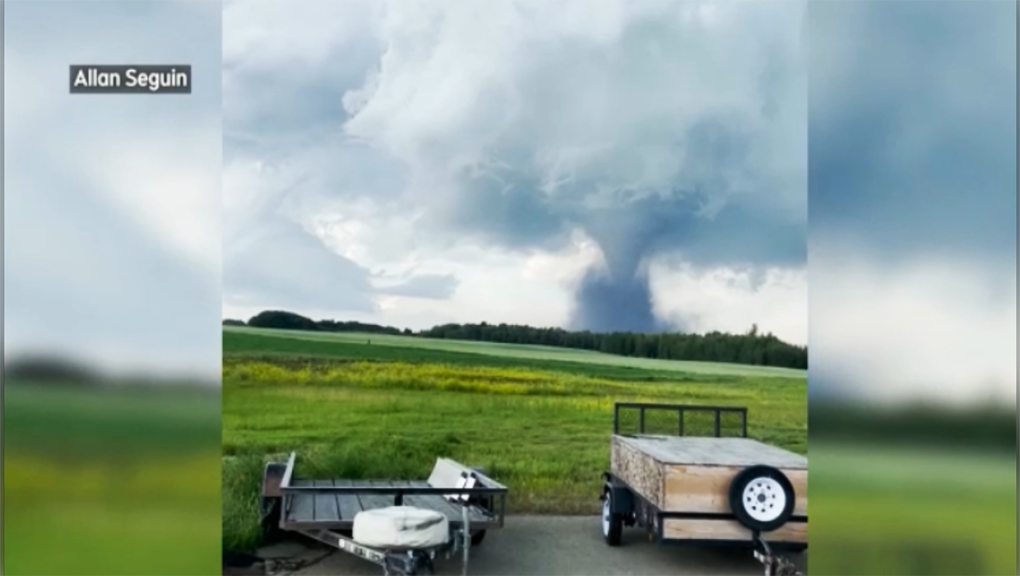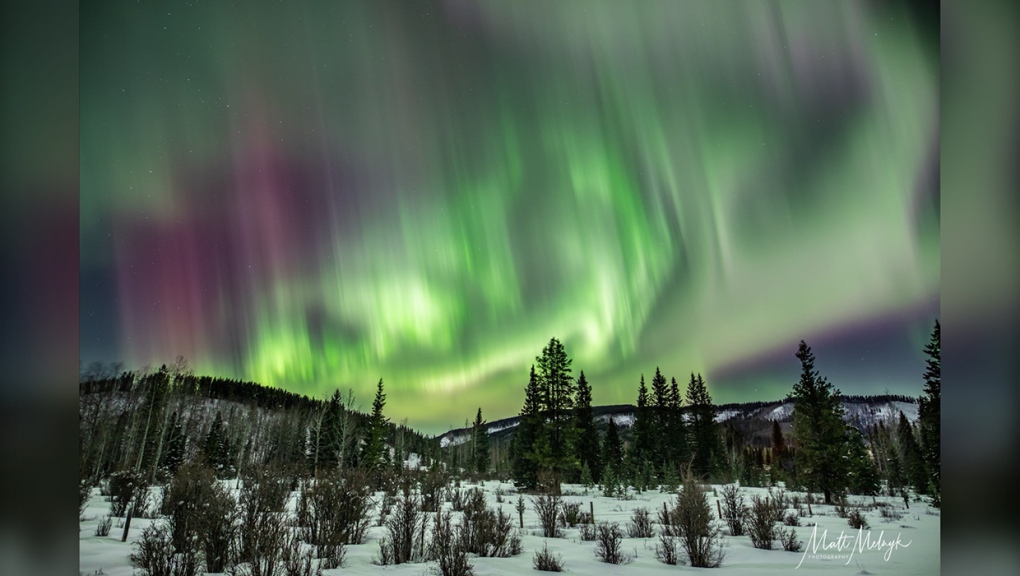Warmest Canadian summer in 76 years: A look back at southern Alberta’s big weather stories of 2023
2023 was certainly a year for the record books when it comes to significant weather that impacted southern Alberta.
Here’s a look at the big weather events that made headlines this year.
DEADLY AVALANCHE SEASON
Beautiful temperatures and sunny conditions were enticing to outdoor enthusiasts in spring 2023, but the mild temperatures also contained an invisible threat.
Near the end of April, a special public avalanche warning was issued across Western Canada by Avalanche Canada due to a dramatic increase in temperatures that destabilized the snowpack.
One person was killed in an avalanche in the Lake Louise area during this warning, capping a particularly dangerous winter with a total of 15 avalanche fatalities in the west last season.
 Beautiful temperatures and sunny conditions were enticing to outdoor enthusiasts in spring 2023, but the mild temperatures also contained an invisible threat: avalanches.
Beautiful temperatures and sunny conditions were enticing to outdoor enthusiasts in spring 2023, but the mild temperatures also contained an invisible threat: avalanches.
COSTLY SUMMER STORMS
Powerful storm cells delivered rapid amounts of rain and hail in July, damaging people’s homes and property.
The Insurance Bureau of Canada says four major storms, including Calgary’s hail storm during Stampede, cost about $300 million in insurance damage this year.
2023 was the third straight summer that Alberta saw significant insured damage from hail, wind and rain.
CANADA DAY TORNADO
On July 1st, a powerful tornado wreaked havoc on central Alberta.
Categorized as an EF4, it’s estimated to be one of the strongest in the province’s history with wind speeds up to 275 km/h.
 A tornado that set down on July 1 was among the most powerful in years in southern Alberta. (Photo: Allan Seguin)
A tornado that set down on July 1 was among the most powerful in years in southern Alberta. (Photo: Allan Seguin)
It was comparable to the Edmonton Tornado in 1987 that killed 27 people and injured hundreds more.
Fortunately, no humans were killed in the Canada Day tornado, but there were livestock losses and one person suffered minor injuries.
Twelve homes were damaged by this tornado and three homes were destroyed.
Its path was 15 kilometers long and more than 600 metres wide.
RELENTLESS HEAT
This summer the country recorded its warmest summer in 76 years, according to Environment and Climate Change Canada (ECCC), and Alberta was no exception.
In Calgary, the heat was so bad for so long, the city had to take serious measures, enacting stage one water restrictions for the first time in history due to drought conditions.
Water levels in the Elbow and Bow Rivers were at historic lows with the Bow in particular flowing at levels not seen in more than a century.
SMOKE-FILLED SUMMER
A warm spring sparked an early start to wildfire season in Western Canada fuelled by the marathon stretches of heat.
The fires produced smoke that cloaked much of the province throughout much of the spring and summer.
There were times when Canadians suffered some of the worst air quality on the planet.
ECCC says several major cities, including Calgary, experienced more than 200 hours of smoke this year.
AMAZING AURORAS
When it wasn’t smoky, clear night skies throughout 2023 allowed us to see some beautiful light shows across Alberta.
The vibrant displays of colour are due to an increase in the sun’s solar activity, and the light shows could be even better in 2024 as the sun enters the peak of its solar cycle.
 Northern lights over southern Alberta in early November. (Photo: Matt Melnyk)
Northern lights over southern Alberta in early November. (Photo: Matt Melnyk)
CTVNews.ca Top Stories

Much of Canada is under a weather alert this weekend: here's what to know
From snow, to high winds, to extreme cold, much of Canada is under a severe weather alert this weekend. Here's what to expect in your region.
'I gave them a call, they didn't pick up': Canadian furniture store appears to have gone out of business
Canadian furniture company Wazo Furniture, which has locations in Toronto and Montreal, appears to have gone out of business. CTV News Toronto has been hearing from customers who were shocked to find out after paying in advance for orders over the past few months.
Fugitive U.S. rioter seeks asylum in Whistler amid warnings of more to come
An American citizen convicted of participating in the Jan. 6, 2021, riot on Capitol Hill and dodging jail time in Whistler may just be the start of an asylum-seeking rush, according to a prominent legal expert.
Jeff Baena, writer, director and husband of Aubrey Plaza, dead at 47
Jeff Baena, a writer and director whose credits include 'Life After Beth' and 'The Little Hours,' has died, according to the Los Angeles County Medical Examiner.
New Orleans attacker had suspected bomb materials at home, reserved truck weeks ago, officials say
The man who rammed a pickup truck into a crowd of New Year's revelers in New Orleans had suspected bomb-making materials at his home and reserved the vehicle used in the deadly attack more than six weeks earlier, law enforcement officials told The Associated Press on Friday.
Soldier who died by suicide in Las Vegas told ex-girlfriend of pain and exhaustion after Afghanistan
The highly decorated Special Forces soldier who died by suicide in a Cybertruck explosion on New Year's Day confided to a former girlfriend who had served as an Army nurse that he faced significant pain and exhaustion that she says were key symptoms of traumatic brain injury.
Four puppies abandoned in northern Ont. rescued, rehomed
On New Year's Day, a pair had gone for a drive on northern Ontario backroads near Markstay-Warren to look at the local wildlife when they came upon four puppies in the middle of the road in the cold.
Hundreds of animals killed in Dallas shopping centre fire
A fire that broke out at a shopping center in Dallas on Friday morning killed more than 500 animals, most of which were small birds, authorities said.
Another suspect arrested in investigation of man found dead on Niagara Region roadside, one remains at large: police
Niagara police have made another arrest in the murder investigation of a 38-year-old man found dead near a rural roadway in Port Colborne, Ont., this past summer.






























